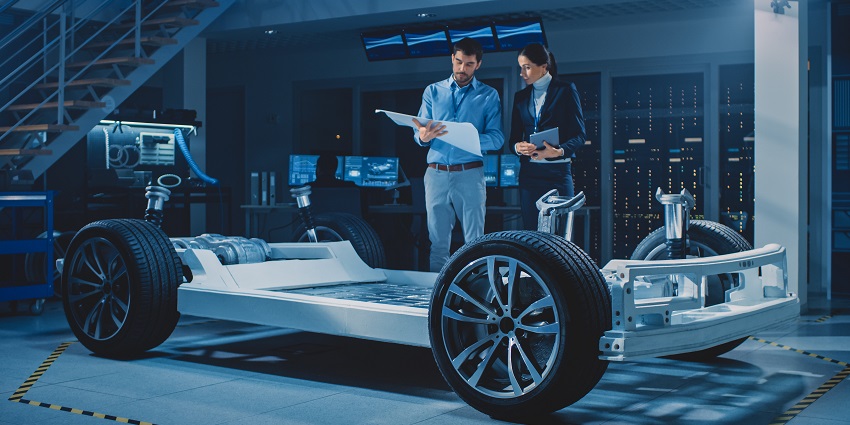Buying a new car is often a complex, time-consuming, and expensive experience. We spend hours looking at models, researching information, and comparing our options. However, it’s not just the choice of car people agonize over, but the decision of which vendor to buy from.
Today’s buyers are setting higher standards for what they expect from the automotive sector. Whether you’re purchasing a fleet of vehicles for a business, or a single family car, you want to be able to trust in the quality of service you’re going to get. To create this sense of confidence, automotive brands need to invest heavily in the right CX strategies.
As the automotive marketplace continues to evolve, and the purchasing journey grows increasingly digitised, companies need to reconsider how they connect with their audience and build a sense of trust. Currently, 92% of dealers say CX will be critical to their future growth.
Let’s explore the evolving nature of CX in the automotive sector.
The Potential for CX in the Automotive Sector
Like in many industries, the buying process in the automotive sector has changed significantly in the last couple of years. Consumers are spending less time in showrooms, and more time interacting with service agents and professionals remotely. Around 60% of car buyers under the age of 45 are set to purchase their next car entirely online.
In this digitally evolving and fast-paced world, the majority of shoppers expect real-time customer service (across a range of channels), excellent resources to help them make their choice, and a fantastic commitment to ongoing service.
By examining the CX landscape, and making changes to the way they connect with customers throughout the purchasing journey with the correct tools, automotive companies can:
- Streamline the buyer journey: Automotive shoppers spend an average of 14 hours researching cars online before making a purchasing decision. Making it easier for customers to retrieve more of the information and guidance they need in a digital world can help automotive brands outshine the competition. For instance, Honda can provide “test view drive” videos to customers conducting research, then allow those customers to connect with an agent online to ask questions about their model of choice.
- Improved productivity: Running an effective automotive business in today’s evolving landscape means unifying employees from a range of environments. Manufacturer representatives need to be connected with on-floor sales assistants and so on. CX solutions like workforce management tools make it easier to track all of your specialists in the same place. A CCaaS solution also means you can track conversations with customers across a range of channels, as they move between shopping online and offline.
- Data-driven sales and processes: Data is an important tool in ensuring sales in the automotive industry. A connected CCaaS solution with in-built CRM tools can help to provide a better insight into the customer journey, and even allow vendors to keep track of when a vehicle may need maintenance. As cars grow increasingly intelligent, IoT devices will also be able to send information back to the CCaaS environment, to help vendors track when vehicles might be having issues.
Trends Driving CX in the Automotive Industry
Customers commonly see buying automotive products as a painful task. Not only do they need to make the right choice of vehicle, but they also need to ensure they’re buying from a distributor who will help them to preserve their investment over time. As the automotive landscape continues to change, with more people buying cars in a contactless environment, and new forms of technology hitting the streets, teams have a lot of transformation ahead.
Some of the major trends driving opportunities in the automotive sector today include:
- Omnichannel experiences: Customers in every industry are looking for more versatile, omnichannel experiences. This holds true for the automotive sector too. People don’t want to have to visit multiple automotive dealers to get the right car. They’re just as comfortable purchasing products online. With the right CCaaS solutions, companies can provide assistance to their customers through video, chat, and various other forms of conversation outside of the showroom, enabling omnichannel sales.
- Extended Reality: As consumers search for more convenient ways to purchase vehicles, they’re also experimenting more with disruptive technology. With AR and VR experiences, combined with a contact centre and CRM solution, companies can deliver new levels of service. Extended reality can essentially allow users to experience what a vehicle might look and feel like at a distance, without ever visiting a showroom.
- Self-service: As mentioned above, a lot of the research involved in searching for a new vehicle or fleet happens before a customer ever connects with a sales representative. Companies need to invest in CX tools to make this research experience more effective. This includes using FAQ bots, and chatbots to answer customer questions about models. The right self-service tools can even allow users to schedule maintenance and test drives without the need for human input from an agent.
- Employee experience: Various members of staff are involved in keeping an automotive company running successfully. Sales, marketing, and production teams need to be aligned in the same environment, with the same access to tools and knowledge. Workforce management tools can provide users with a hub of insights to help them do their best work, while CCaaS solutions can draw insights from CRM systems and other data. In a more aligned environment, distributed teams can work more effectively together.
- AI and automation: Intelligent tools are making a significant impact on the automotive landscape. As vehicles become more intelligent, they can send information back to the dealership or manufacturer about customer preferences, car performance and more. AI and automated tools can then provide insights into when vehicles need repairs or maintenance, paving the way for a more proactive level of service.
The Future of CX in the Automotive Industry
The automotive industry is changing at an incredible pace, as companies strive towards more efficient and intelligent vehicles. At the same time, customers are becoming increasingly demanding when it comes to the level of service and support that they expect throughout the entire buying experience.
Investing in the correct CX solutions will be the only way for future automotive brands to ensure they’re delivering the service customers need, to maintain a sense of loyalty. The right tools could even pave the way for a more convenient purchases and automotive services in the future.







